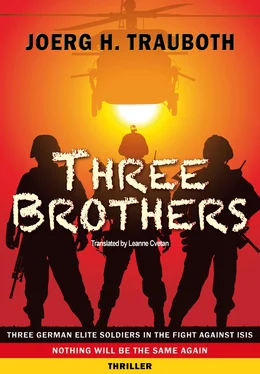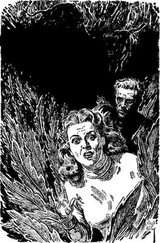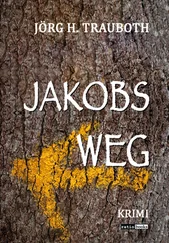Together with the commando officers and the company psychologist, Lieutenant Colonel Gerrit Hinrich, Brigadier General Wolf had intensely examined the three from the third commando company’s second platoon, as well as reviewed their training history and all their past missions.
“Gentlemen,” he said as he opened up the selection procedure, “we need a small team for a big assignment. What does that mean? The three of them needs to know and respect each other deeply and be able to replace each other in basic skills and knowledge. Two of them must be capable of obeying the leader without question. Who could be the leader? We need a warrior with mission experience, someone who can lead and fight like no other.”
He could have said “Marc Anderson” right from the start, as the vote immediately fell to him. At twenty-seven years old, and due to his outright refusal to advance in his military career, he has become a person of trust among the troops for anyone who has trouble with the mission, or their commander, or their wives. He is one of the few officers whom the experienced master sergeants hold in high regard as a troop leader.
“Marc,” Hinrich comments, “is the epitome of a highly-developed speed machine. Granted, he has a high opinion of himself and is well aware of his capabilities, but he is not complacent. If he ever separates, it would be at least another five years before anyone else would be able to qualify at his caliber.”
“Okay, agreed. Who should be number two? I assume an explosives expert and sharp shooter. Your suggestion reads: First Sergeant Thomas Heinrich. Why him exactly?” he looks at the psychologist.
“Heinrich is a true all-rounder, confident, yet modest to the core. He comes from a devoutly religious locksmith family in Freiburg and has always been a fan of weapons and explosives. He was the best decathlete in his youth sports club. When he heard that the KSK men were allowed to try out the newest weapons before the army gets to use them, that sealed it for him, his path was decided. He is extremely sharp in his technical knowledge, which is how he managed to make it to troop leader. He’s a rather normal, non-descript guy, a bit of an introvert, but: whatever he does, he does it perfectly. As a team member and as a leader.”
The officers nod. However, the general is not yet satisfied.
“If he is a troop leader himself, how does he react to having to follow orders from Eagle One troop leader Anderson?
“They have a deep friendship and he has a lot of respect for Marc. For him, joining Marc in combat is a matter of honor, as odd as that may sound. There is no jealousy. His appreciation of their friendship is genuine. I also think that in this small team, he is especially important. A lot can happen, and Heinrich is rock solid. If anyone is hit, he picks him up, and carries him home himself. He would be an excellent replacement should something happen to Marc.”
“And his limits, where do his limits lie, this ‘rock solid’ man, as you say?”
“Heinrich is looking for the security of a system that can offer him a very controlled hierarchy and emotional structure. That’s exactly what we provide him, more than any other unit. He is very dependent on Marc and Tim and does anything they want. His need for friendship is exceptionally strong. He fears being abandoned. It is possible he has some homosexual tendencies, that he is unaware of. He is something of a strong man who runs deep.”
The psychologist does not know how right he is with his analysis. In Afghanistan, Thomas had laid explosives to detonate an apartment with Tim at his side, and instead of finding dead terrorists in the aftermath, he found a dog that was badly injured from the blast. The dog crawled over to Thomas and licked his assault rifle and then died whining in his arms. He was very quiet for many days after that. A little too quiet. It was Tim who recognized that Thomas had suffered a trauma. He gradually started to come out of his shell and they talked about it over and over again. It was something that connected the two men.
After that, the two have been inseparable. As inseparable as during their rescue mission in Hindu Kush of the F-15 pilots.
Brigadier General Wolf had heard about the incident with the dog. He knows that his elite soldiers are especially vulnerable to traumatic circumstances. This time it was a dog, next time it could be a mother with a baby buggy blowing herself up as a suicide bomber that causes chaos in their souls. And he knows that friendships are often quicker and more effective than therapy and months-long observation by a psychiatrist in a military hospital. Still, his “racehorses” as he calls them, often last only about ten years in mission duty before they are burn out.
But these men are nowhere near that far. They are fired up about the mission in Northern Iraq and are set on getting the hostages out. They also appreciate the fact that such missions don’t happen very often.
While Captain Anderson is giving the briefing, Wolf observes the third member of the group.
They were looking for a specialist on urban warfare, one who can perfectly size up a target and can hit it with one hundred percent accuracy while standing, turning, or in mid-air, all the while with an eye on the overall situation.
“All the qualities, General, that Sergeant Tim Nader possesses as if he were born that way,” the psychologist replies.
No one would expect that this short, wiry man with a grizzly beard and serious-looking eyes would be such a talented combat fighter who has mastered all the traditional KSK disciplines. Tim is the one who has consistently passed all the annual stress tests in the Graf Zeppelin Barracks with the highest scores. He is a good team player, but not much of the leader type.
“How did he even come to join the military?” Wolf asks the psychologist.
“He and Marc Anderson were schoolmates in Hamburg and played together on an American football team. It was Marc who brought him to Calw. The linguistic and the psychological teams, myself included, were head over heels about him. Tim advanced to the top man in the commando company and quickly made a name for himself. Marc, Tim, and Thomas became fast friends.”
Still, Wolf was not yet satisfied.
“Why would a highly intelligent, linguistically talented guy who speaks various Arabic dialects, English, and French not pursue a career in his father’s tea manufacturing business in Hamburg, but torture himself instead in the military?”
“You are correct, Nader doesn’t need us. He could have had a successful career with his rich, Muslim family. But he longs for recognition and apparently doesn’t get that in the family business. Recognition not from others, but of and from himself and he has a great deal of ambition, but also some kind of obstinate determination. The Special Forces is the perfect field of work for him. Here he can grow like nowhere else. But he is still looking for something. His friend Heinrich joined the KSK, and that was enough for him. But Nader’s goals in life extend beyond the Special Forces. I hear he is studying parallel to the military. At some point he will leave us. But until that happens, we can greatly benefit from his abilities, including his being Muslim and his teachings about a world that is foreign to most of us.”
“Thank God for that,” adds Wolf, “because he has done some remarkable work for the German Intelligence Service behind the lines of the Arabic-speaking realm. He is his own long-range reconnaissance company!”
Wolf is proud of his charges. Tim Nader is a very special jewel to the KSK. The examination officials were skeptical of the German-Lebanese soldier at first. Accepting a Muslim into the KSK was an absolute novelty. The results of his security check, however, provided no objections. His family, his environment, the applicant himself – totally clean.
Читать дальше











